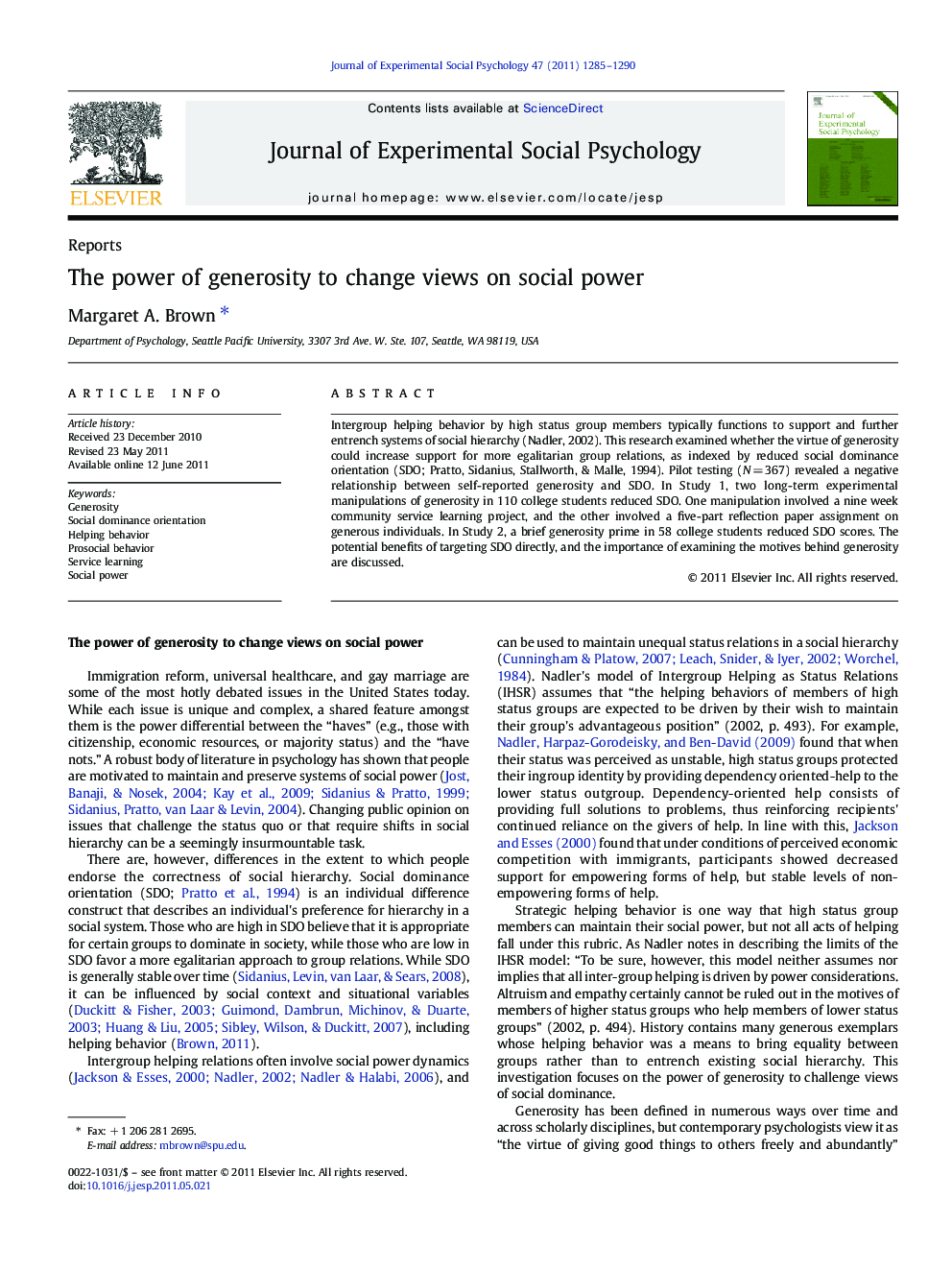| Article ID | Journal | Published Year | Pages | File Type |
|---|---|---|---|---|
| 948000 | Journal of Experimental Social Psychology | 2011 | 6 Pages |
Intergroup helping behavior by high status group members typically functions to support and further entrench systems of social hierarchy (Nadler, 2002). This research examined whether the virtue of generosity could increase support for more egalitarian group relations, as indexed by reduced social dominance orientation (SDO; Pratto, Sidanius, Stallworth, & Malle, 1994). Pilot testing (N = 367) revealed a negative relationship between self-reported generosity and SDO. In Study 1, two long-term experimental manipulations of generosity in 110 college students reduced SDO. One manipulation involved a nine week community service learning project, and the other involved a five-part reflection paper assignment on generous individuals. In Study 2, a brief generosity prime in 58 college students reduced SDO scores. The potential benefits of targeting SDO directly, and the importance of examining the motives behind generosity are discussed.
► This research finds that generosity affects one's views on social power and intergroup relationships. ► Priming generosity, reflecting on a generous model, and doing service learning reduced social dominance orientation. ► Interpersonal generosity mediated the effect of the experimental manipulations of generosity on social dominance scores. ► Cultivating virtues such as generosity may be an effective way to reduce a variety of prejudices.
